
DJ Equipment: it’s a pretty big top huh?
I mean…
- What do you even need to get started?
- How much will it all cost?
- What should you buy first?
- And what should you not buy at all?
Well… if you’re a beginner – and you’re looking for answers such as these, you’ve come to the perfect place.
Because in this post – you’re about to get a step-by-step guide to get yourself DJing as soon as possible, with a simple yet effective setup…
While spending only what you really need to – and not a single dollar more.
First up…
DJ Equipment Must-Have #1: The Computer
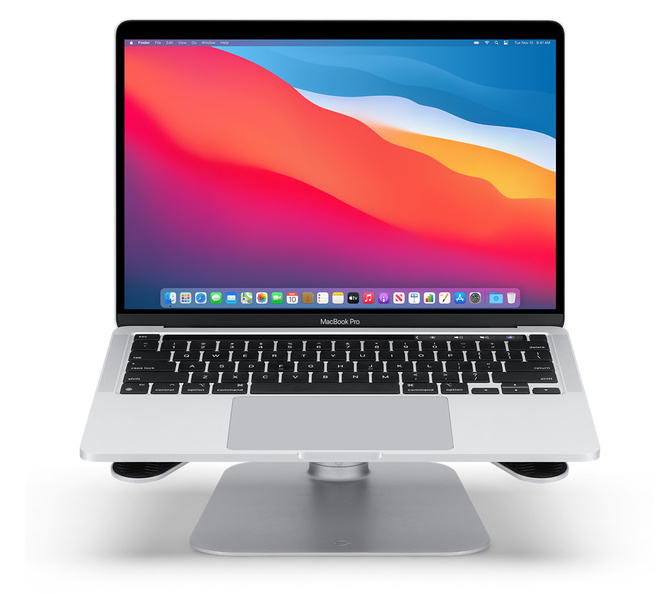
These days, it’s hard to find any aspect of music that hasn’t crossed over into the digital realm.
Leading the charge here, of course, is the electronic DJ music that you’re probably aspiring to create.
So naturally, the laptop has now become the centerpiece of virtually all modern DJ setups.
And it’s the first thing you’ll want, when assembling your own.
Luckily though, since even the most affordable laptops of the last few years have grown insanely fast…this isn’t a piece of gear you’ll likely need to spend any money on…
Since the one you have now will almost certainly be good enough for all but the most complex effects stacks.
However, if you’re planning for the long-term, you’ll still want to invest in the best laptop you can afford, since the power demands of software and effects become evermore sophisticated with each new release.
In this case, just get a Macbook with Apple’s M1 or M2 processor, as these are ridiculously powerful. Here are some links:
- Macbook Air
- Macbook Pro
Now let’s continue. Up next…
DJ Equipment Must-Have #2: The Software
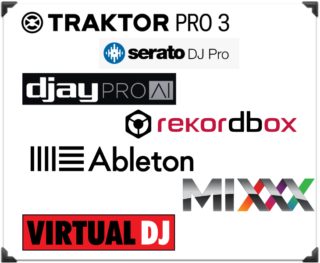
If item 1 was a computer, it’s no surprise that item 2 would naturally be the software.
Put simply, DJ software was originally just a digital visual representation of the analog DJ tools that preceded them.
Today however, new technologies have allowed DJ software to evolve into so much more…
With many of its current features allowing for possibilities never even been imagined in an all-analog world.
While hardware-only setups do still exist, they are mostly used by experienced DJ’s who have been around forever, and already have their preferred style of working.
For anyone first starting out, software is definitely the way to go.
Currently there are only a handful of viable options to choose from, so to learn more about them and see how they compare, check out this article:
Up next…
DJ Equipment Must-Have #3: The Controller
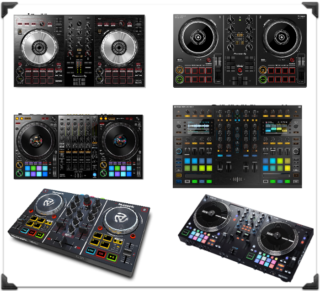
Next on the shopping list…we have the DJ controller.
While you could in theory, just control the software directly from your laptop…
You won’t be able to make fast, on-the-fly adjustments in real time, the way you would using both hands on a physical controller.
So to solve this problem, DJ controllers serve as the physical version of the same controls you see on your laptop screen.
Classic Example:
- Pioneer DDJ-200– (Amazon)
It’s never an exact copy, especially when you mix controllers with software of different manufacturers, but ideally, you’ll want it to be as close as possible.
Which is why…choosing a controller/software pair that work well together can save you a lot of frustration in the future.
While certain controllers come with software included, others won’t. Meaning you’ll have to decide on your own, which software will work best.
And while this may seem a bit intimidating at first, it’s not that bad, once you see the options. To help you with that part, here’s a separate post:
Up next…
DJ Equipment Must-Have #4: Headphones
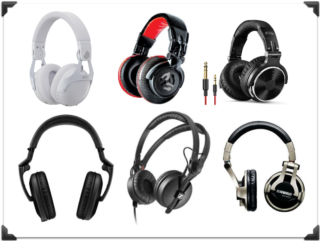
For the next item on our shopping list, we’ll need a way to actually hear the sound of our mixes.
And for that, we have DJ headphones.
While not ideally intended to be used as the single source for monitoring your sound…
DJ headphones are instead primarily designed to be used in combination with speakers…with the live track on the speaker, and your upcoming cues in the headphones.
However, rather than getting a set of huge speakers right away, you may instead prefer to start with headphones at home, just to become familiar with all your other equipment…then graduate to speakers when you feel ready.
Now, with DJ headphones, there are a few specific features you’ll need, that you can’t find on just any old set of normal headphones.
Classical example:
To help you find a suitable pair such as these, here’s another article:
Up next…
DJ Equipment Must-Have #5: Speakers
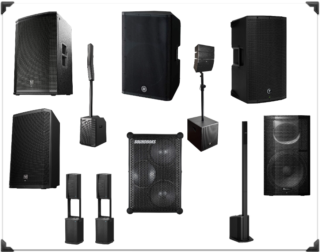
While you may not be ready for them on Day 1, if you ever want others to hear your music…
The time will soon come when you’ll need to invest in a set of speakers.
Classic example:
- Yamaha DXR15-MKII (Amazon)
And even if you only ever play for yourself, you’ll never get a true DJ experience unless you’re able to use speakers in combination with headphones.
However, since these speakers will likely be the biggest investment you’ll make as a DJ, it can be quite scary when choosing between potential options.
So to help you navigate through the field, once again, I have another post for you:
Up next…
A Possible Upgrade to Consider in the Future
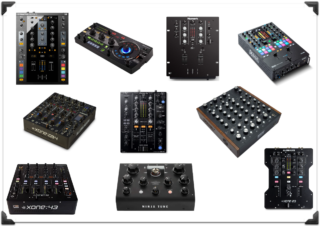
While DJ controllers are surely the ideal starting solution for beginners…
At some point in your DJing career, you may choose to upgrade your rig from a digital controller to an analog mixer.
When you look at pro setups, the vast majority of them prefer mixers over controllers.
Mainly because it opens up a ton of routing possibilities to accessory hardware such as:
- Turntables
- Media Players
- Microphones
- Instruments
- Effects
Classic Example:
For more information on choosing a mixer for your setup, check out this post:
Now finally…
A Must-Have Upgrade for Aspiring Scratch DJ’s
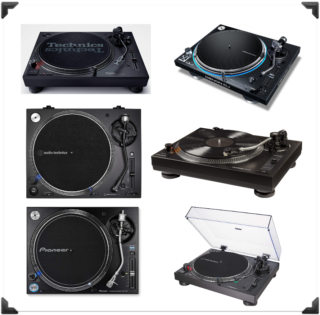
When you picture in your head, a DJ doing his thing on stage…
Scratching on a turntable is probably the first image that comes to mind.
Yet the truth is…a scratch DJ is a very specific type of DJ with a very specific skillset.
Which means, the turntable isn’t quite a necessity on the list of DJ equipment, in the way that most newbies might imagine…
And is instead, only required later, if and when you decide it’s something you’d like to explore.
If you’re at that point now, and would like some help in finding the right turntable for you, here’s an article:
Classic example:
Up next…
The Ultimate in Professional DJ Equipment
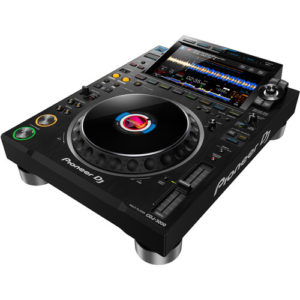
Considered by most in the community as the ultimate in pro DJ equipment…
Media players allow for drastically reduced DJ’s setup times, by essentially condensing your rig into an all-in-one, ready to use device.
Media players only require a USB stick to source music, so DJs don’t need to bring much more than that with them when touring.
The software is built-in and newer models have screens big enough to allow you to mix without ever needing to look elsewhere….essentialy replacing your computer screen entirely.
So if you ever envision becoming a pro DJ, expect to make the transition to one of these sooner or later.
Now, for various reasons the most popular media players in clubs all over the globe are Pioneer’s CDJs.
Classic example:
- Pioneer CDJ-3000 – (Amazon)
By the way, if you found this post useful, I highly recommend joining our free Home Recording Secrets email newsletter where you’ll discover….
- How to Get Your First Studio Up and Running in a Single Weekend
- How to Avoid Wasting Thousands of Dollars on Unnecessary Pointless Purchases
- How to Get a “Million Dollar” Pro Studio Sound in a “Thousand Dollar” Home Studio
- PLUS… All Sorts of Other Amazing Insider Secrets Revealed
And it’s totally FREE! Click here and Enter Your Email to Sign Up.
More Electronic Musician Posts in this Series:
DJ Essentials | DJ Software | DJ Mixers | DJ Controllers | DJ Turntables | DJ Speakers | DJ Headphones | MIDI Controllers | Virtual Instruments